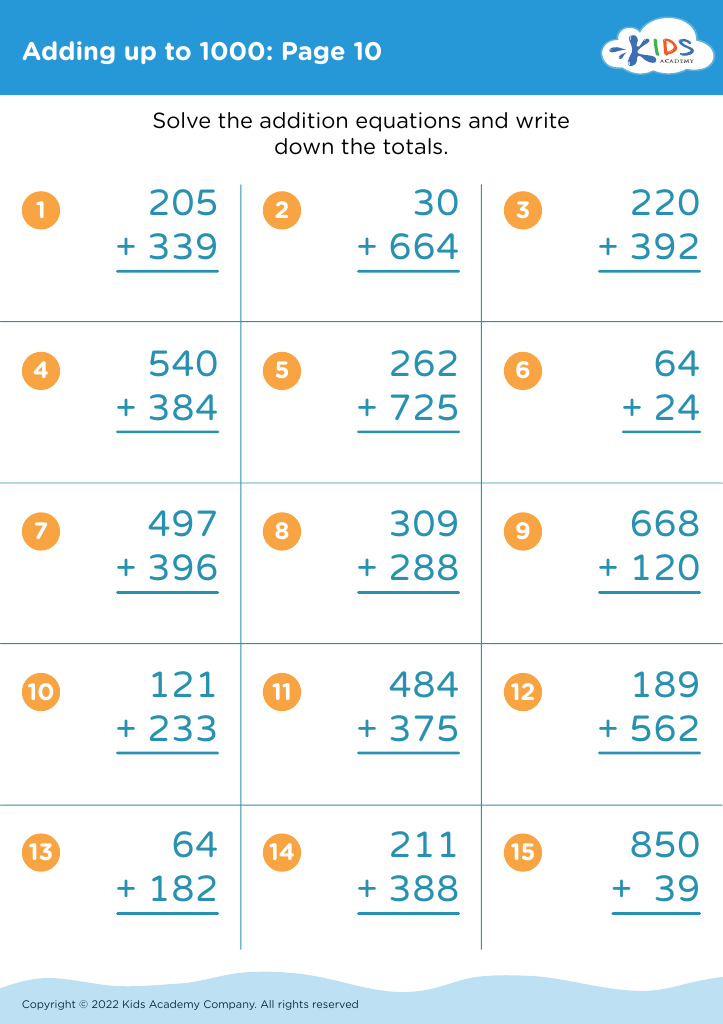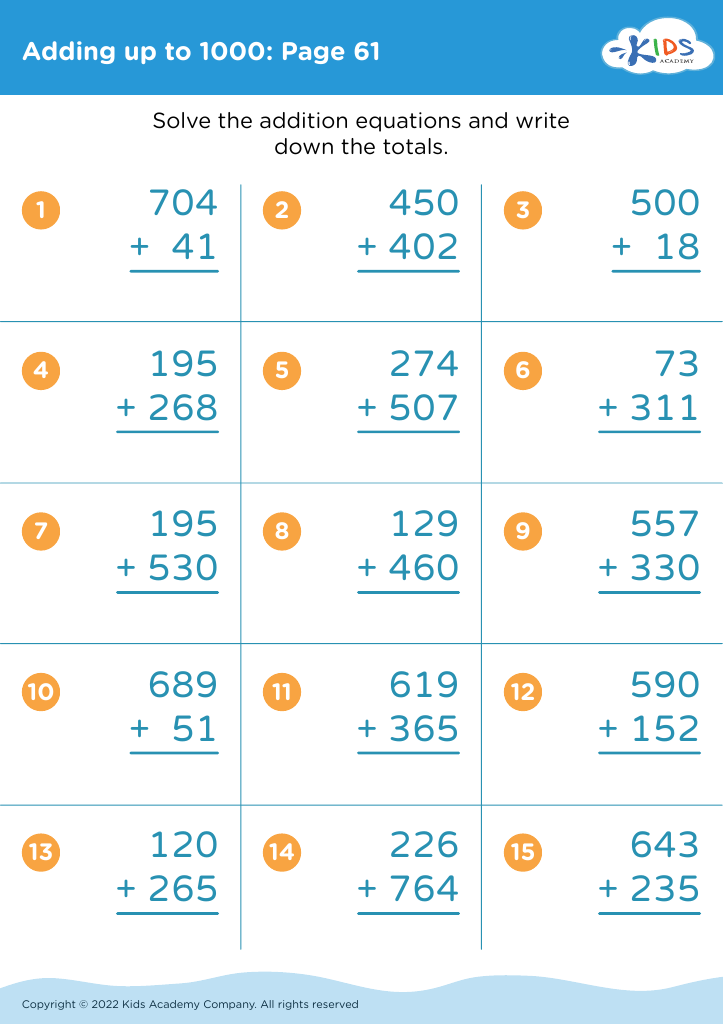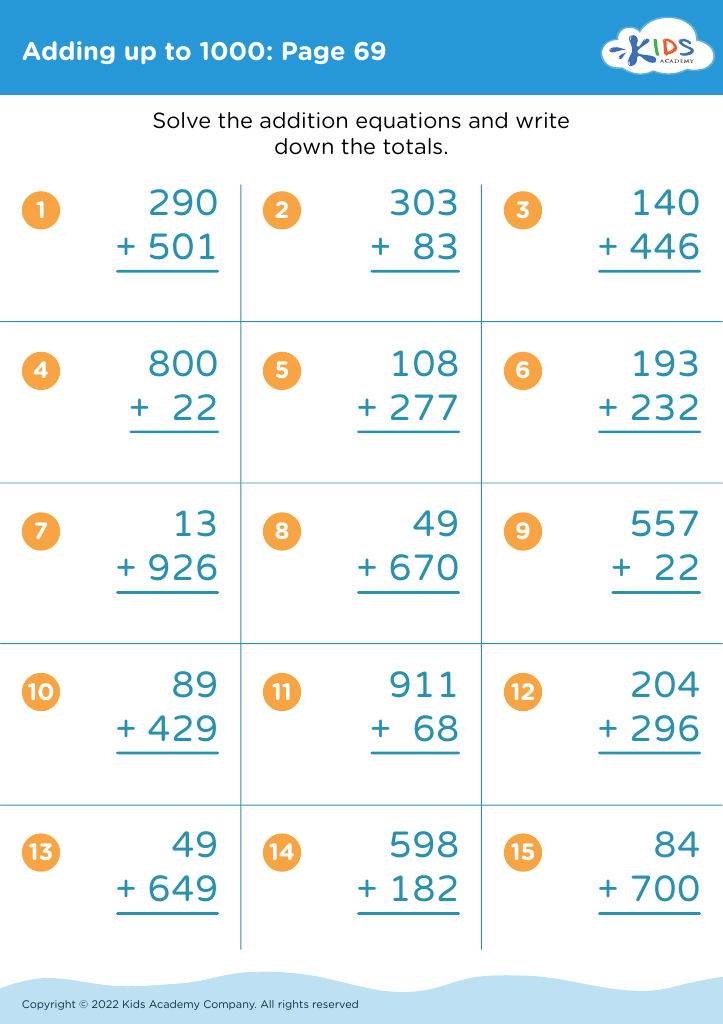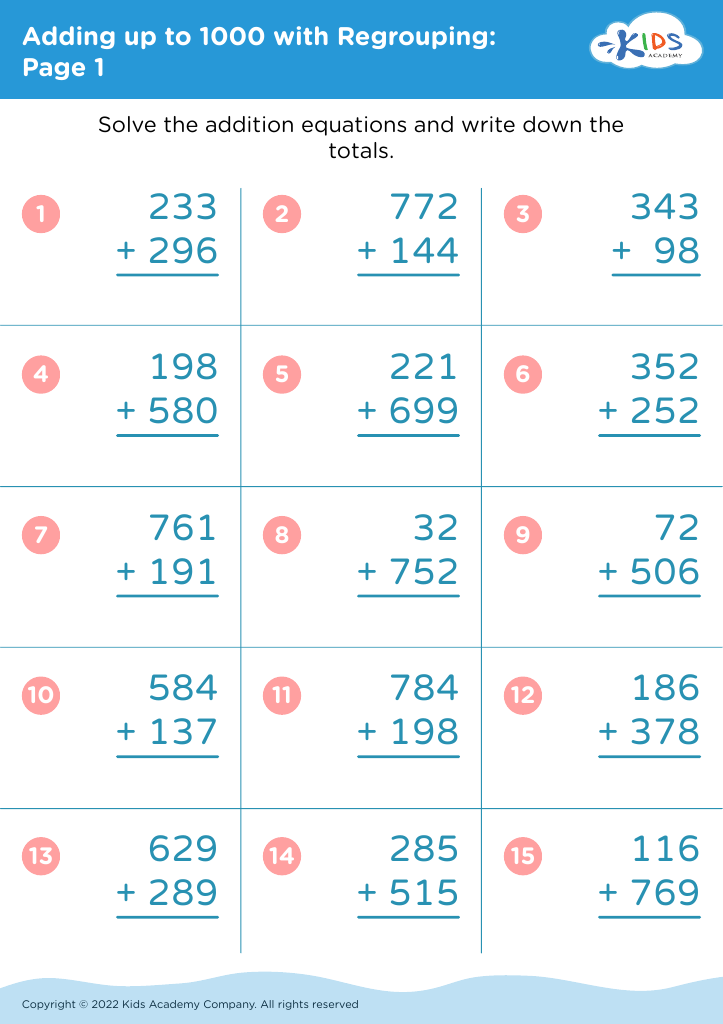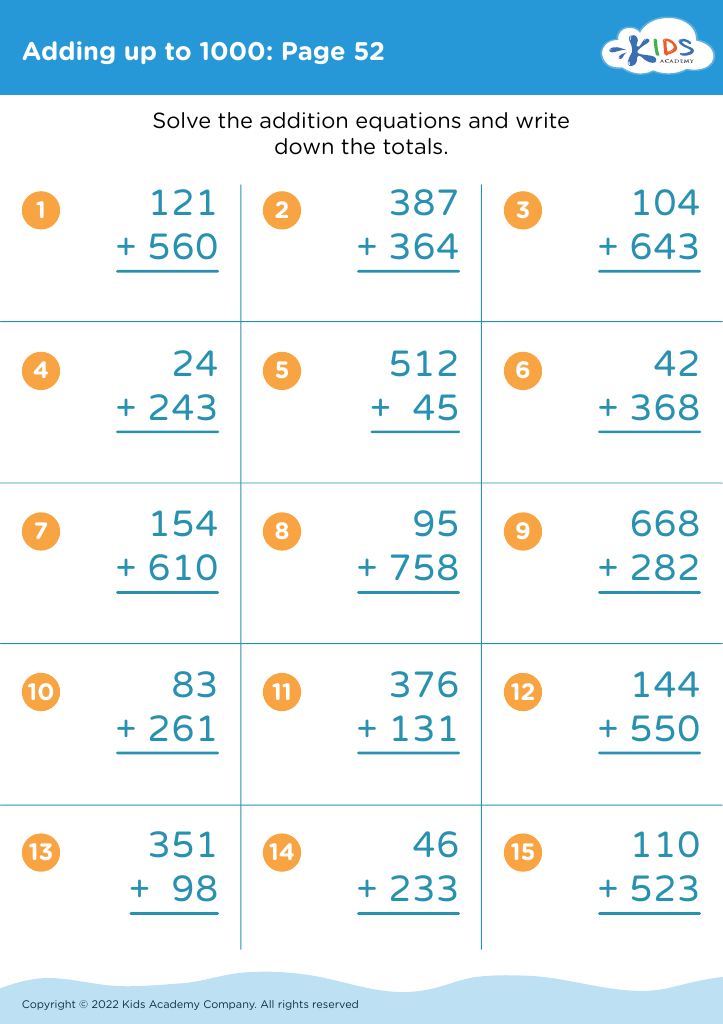Fraction simplification Adding up to 1000 Worksheets for Ages 3-8
7 filtered results
-
From - To
Our "Fraction Simplification Adding up to 1000 Worksheets" are tailored for young learners aged 3-8. These engaging worksheets help children grasp the fundamental concept of fraction simplification while building their math skills. Designed to seamlessly integrate into any elementary curriculum, the activities foster critical thinking and problem-solving. Through fun exercises, kids will simplify fractions and practice adding up to 1000, making complex math notions approachable. Empower your child with the confidence to excel in math with resources crafted by educational experts. Ideal for parents and teachers alike, these worksheets transform learning into an adventure.
Parents and teachers should care about fraction simplification and basic addition up to 1000 for children ages 3-8 because these foundational math skills are critical for their cognitive development and future academic success. At this formative stage, children's brains are highly receptive to new information and developing crucial problem-solving and analytical skills. Mastery of these early math concepts fosters a strong numerical foundation, which is essential for more complex mathematical reasoning encountered in later grades.
Moreover, understanding fractions and large number addition teaches children about part-whole relationships, proportionality, and the importance of precision, which are concepts they will encounter in various real-life scenarios such as cooking, budgeting, and sharing. These activities encourage logical thinking and the ability to approach problems from multiple angles.
Additionally, early exposure to these mathematical principles enhances a child's confidence and reduces anxiety related to math. Creating a positive and engaging math learning experience at a young age promotes a lifelong appreciation and competency for mathematics. Hence, focusing on these areas is not merely about academics but also about equipping children with essential life skills. The encouragement and support from parents and teachers can make a significant positive impact on a child's educational journey and overall development.
